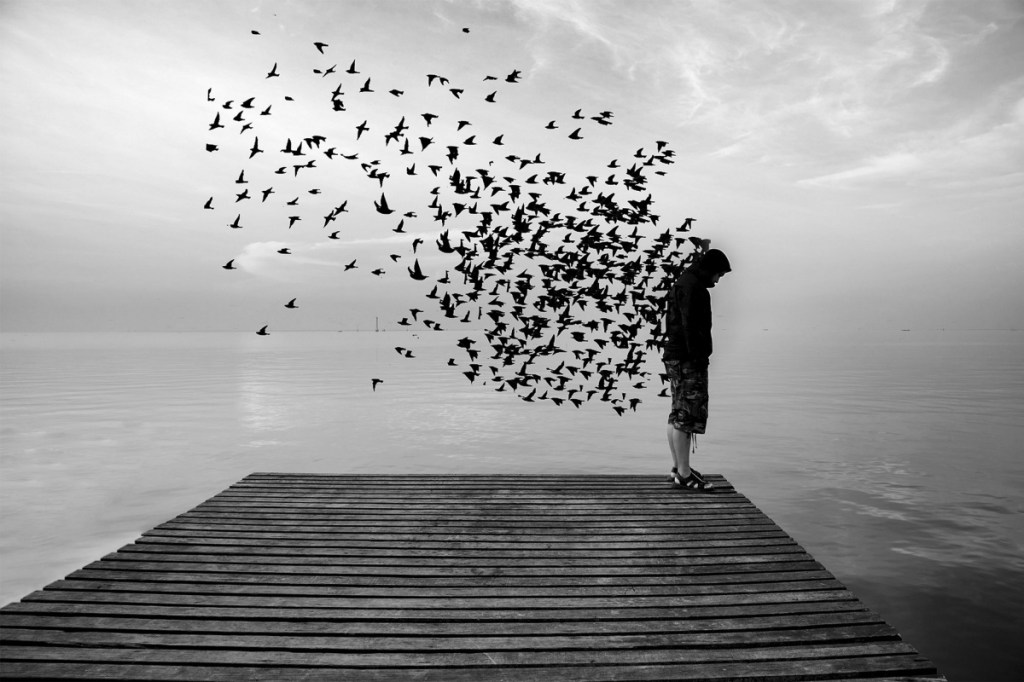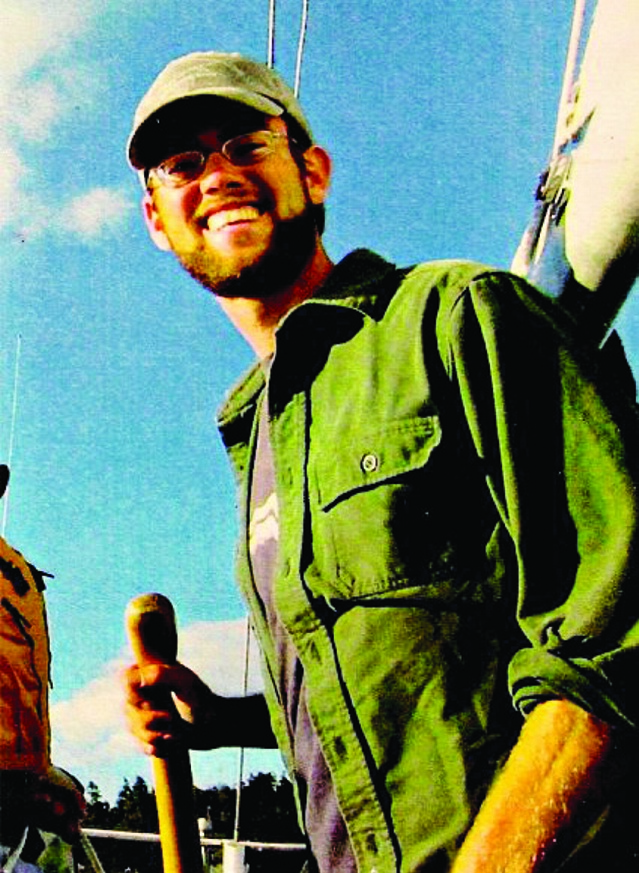I sometimes wake up at night with an image I can’t shake. My son, who is forever 24, is leaning against a shed. He looks terribly sad. The gun he just bought lies beside him, and the one bullet he fired seems to pierce my heart as well.
That was June 27, 2008, on his mother’s birthday. It changed my world as nothing else could. I will never fully recover. He was so handsome and brilliant. It would be just as tragic if he weren’t handsome and brilliant, but he was. He gardened, sailed, ran, biked, played guitar, paddled rivers … and we did all of those things together. He didn’t drink, didn’t take drugs. He had a big, warm smile and liked to hug.
There were clues about a something darker. A self-portrait that he mostly painted over in black, showing only a scared face. But most of the time we saw a good-natured boy, capably growing to manhood.
How painful it is to think of someone so unhappy, so hopeless, that he or she believes there is just one way out.
This happens to more people than we realize. When a neighbor’s dead body turns up outdoors without explanation, when a neighbor overdoses on lethal drugs, when a neighbor closes the garage door and leaves the car running. This is desperation. This is an irreversible end to agony.
I live in a small community where people know their neighbors. In recent months, we’ve had several deaths here that people whisper were actually suicides. They weren’t reported in the media that way. And that, I think, is a terrible mistake. If we can’t admit the truth, if we can’t face the effects of mental illness, how will we ever help those who suffer from it?
Our society harbors a deeply held stigma about mental illness, suicide in particular. “So-and-so died suddenly, at home.” That’s code for suicide. It could be a heart attack, but I doubt it. By making depression and thinking of killing oneself unspeakable, we send a message of shame and wrongdoing that affects everyone around that person, including that person if he or she survives.
We need to let the sun shine in, we need to accept the reality that we are not smiley faces. Sometimes we end up hating ourselves, and keeping that information hidden. We need to stop covering up the darkness as though it didn’t exist.
If you think about it, “committing suicide” sounds like a crime. It isn’t. How terrible that we can’t do more for those of us who see no hope in living. Well, we can do more. We can stop treating suicide as something so shameful we don’t talk about it. We can invite people to share their troubled emotions without judging them.
After my son Joel died, I opened my guitar case to see a note that said, “Poor lonely guitar. Wants to be played.” And I found a bound bundle of cedar bark, with a note that said, “Dad, for our next camping trip.” I couldn’t stop crying.
Joel walked from his girlfriend’s apartment to Johnson’s Sporting Goods in Rockland, and told the salesman he wanted to buy a handgun. No problem. He filled out a questionnaire and was handed the gun and ammunition. He called me on the phone the day he died. I don’t know why he called. To say goodbye?
What if. If only.
In the end, the demon of depression took him down. The gun made it easier and faster. He chose death, although I believe he also wanted desperately to choose life. The demons said no. No, we are taking you down. Never to return. Never to hug those you love, never to plant your garden with all those seeds you saved, never to set sail in the boat you worked so hard to restore.
I can’t bring him back. I can’t bring back my neighbors who ended their lives. But I can spread this message: You don’t have to die before your time. You are worthy, you are beautiful, and your struggles don’t make you any less of a person. You deserve to live, you deserve to be loved. And listened to. You deserve all the help you can get, and we are here to provide it
The hole in my own heart may never completely heal. The scars will always be there. My hope now is that you reflect on how we treat depression, how we listen to one another and allow emotions to be expressed and acknowledged.
We don’t blame or stigmatize people who break an arm in a fall, or who suffer a heart attack. We provide those people with love and support, and unstinting emergency care. We need to embrace mental illness in the same way.
We need to lift the taboo on talking to and listening to people who are feeling that life isn’t worth living.
Steve Cartwright is a former newspaper reporter who lives and writes in Tenants Harbor.
Send questions/comments to the editors.




Success. Please wait for the page to reload. If the page does not reload within 5 seconds, please refresh the page.
Enter your email and password to access comments.
Hi, to comment on stories you must . This profile is in addition to your subscription and website login.
Already have a commenting profile? .
Invalid username/password.
Please check your email to confirm and complete your registration.
Only subscribers are eligible to post comments. Please subscribe or login first for digital access. Here’s why.
Use the form below to reset your password. When you've submitted your account email, we will send an email with a reset code.